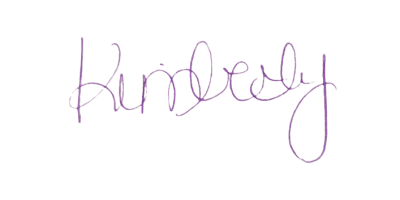Today marks 15 years since my grandma moved to heaven. She raised me most of my life, and even when I lived with my mother, I still stayed with my grandma for long periods. I spent summers and school breaks at my grandma’s house, and she was where I went on weekends and long college breaks.
As an adult, I have reflected on all the ways she molded me into who I am with her actions more than her words. One of the things I miss the most is talking to her. She was the best listener I have ever known. To this day, no one has compared.
The remarkable thing about Grandma is that it just came naturally to her. It wasn’t something she had to think about; it was just who she was. Fortunately for the rest of us, listening is a skill set that can be developed. And one that should be non-negotiable for us to strive to excel in.
A person’s listening ability is an integral element in a relationship and can determine whether the relationship is healthy, rewarding, or even deconstructive. This is true both personally and professionally. And both are important.
We want our home life to be fulfilling, loving, and harmonious. As a spouse, we want to feel heard and esteemed. As a child, no matter the age, we want to feel like our thoughts and feelings have value. Professionally, we want our voice to have influence and be respected. In neither place does anyone want to deal with strife and tension all the time. Both of those things are often the result of a communication breakdown.
The art of being a good listener is so important there are seminars and conferences dedicated to this. There are even institutes with the sole focus of teaching people how to listen to others with intention. It seems a little sad that there is a need for these services, as these types of things are often birthed because there was evidence of the detrimental results of people not being able to communicate productively.
Often, I think we allow ourselves to become so busy that we are myopic in our day, checking tasks off the list that we don’t pause to give someone else our full attention. Maybe our poor listening isn’t intentional, but simply our feelings of being overwhelmed causing us to respond to others half-hearted and distracted. We must be mindful of what our poor listening skills could be costing us and the benefits of being the best listener we can be.
Here are five points to consider:
- Being a good listener isn’t just about being quiet while someone else is speaking. It requires our undivided attention and listening with our body language. My grandma would give me her total concentration without fiddling with a phone, papers, or anything else placed in front of her. She listened with her eyes, made eye contact with me, and nodded when appropriate. She would lean in sometimes, making me feel like she genuinely wanted to hear what I had to say. Her facial expressions were soft and non-judgmental. Her actions created a comfortable environment for me to be vulnerable when needed.
- Listening builds solid relationships. When I use the term “solid,” I don’t necessarily mean close or personal, but it can create fruitful and productive relationships. We will not “click” with everyone we meet, personally or professionally. However, just because we may not want to pursue a more personal relationship with someone, we should still strive to create a mutually beneficial and respectful relationship. We can learn so much from others, strangers, acquaintances, and colleagues alike, and we can grow in wisdom and understanding if we are willing to be good listeners.
- Good listeners have fewer conflicts and are better at reducing misunderstandings. Poor listening skills often cause one to misinterpret or misunderstand what a person is saying. A person with poor listening skills is also more apt to jump to a negative conclusion when they misinterpret what they hear. This creates more conflict and is hurtful to the relationship. A good listener is able to ask clarifying questions that can reduce misunderstandings and find common ground in disagreements.
- Exercising good listening skills can help us be more productive and reduce mistakes in our work. So often, an employee will receive an assignment from their boss but stop actively listening halfway through the request. They heard what they believed was enough to complete the task and allowed their brain to start mentally processing the job instead of listening to the end. The result is often a finished product missing a critical part of the job. Businesses that provide a product or service to clients are also at risk of poor outcomes when good listening skills are not applied. The business owner doesn’t intentionally listen to their client until the end, which results in the client being disappointed with the product they paid for. Word of mouth can be incredibly beneficial or detrimental to a business.
- As Christians, we are called to be a light and to strive to be Christ-like. God loves His children and seeks to know each of us personally and intimately. As followers of Christ, we are also to love His children. A characteristic of His love is making others feel valued just as they are to Him. When we listen to others, we are showing them respect and saying with our actions, “You matter. You are important.” We can exemplify Christ more by our behavior than by quoting scripture. Accordingly, we can kill our testimony with our actions. James 1:19 (NIV) tells us, “My dear brothers and sisters, take note of this: Everyone should be quick to listen, slow to speak and slow to become angry.”
The benefits and the consequences of how well we listen are countless, so many more than I touched on. It is important to remember how much we want to be heard and feel like our voice matters. Why wouldn’t others want to feel that way also?
Some of us may need to improve our listening skills more than others. That is okay because the good news is all of us can learn and grow in this area. When we desire to honor God with our lives, He will help us in our endeavors to be more like Him. Not only will we see the fruits of being better listeners in our spiritual lives, but I am confident we will also see the rewards at home and at work.
Thank you for being a part of the UBN Community. You matter to God, and you matter to us.



